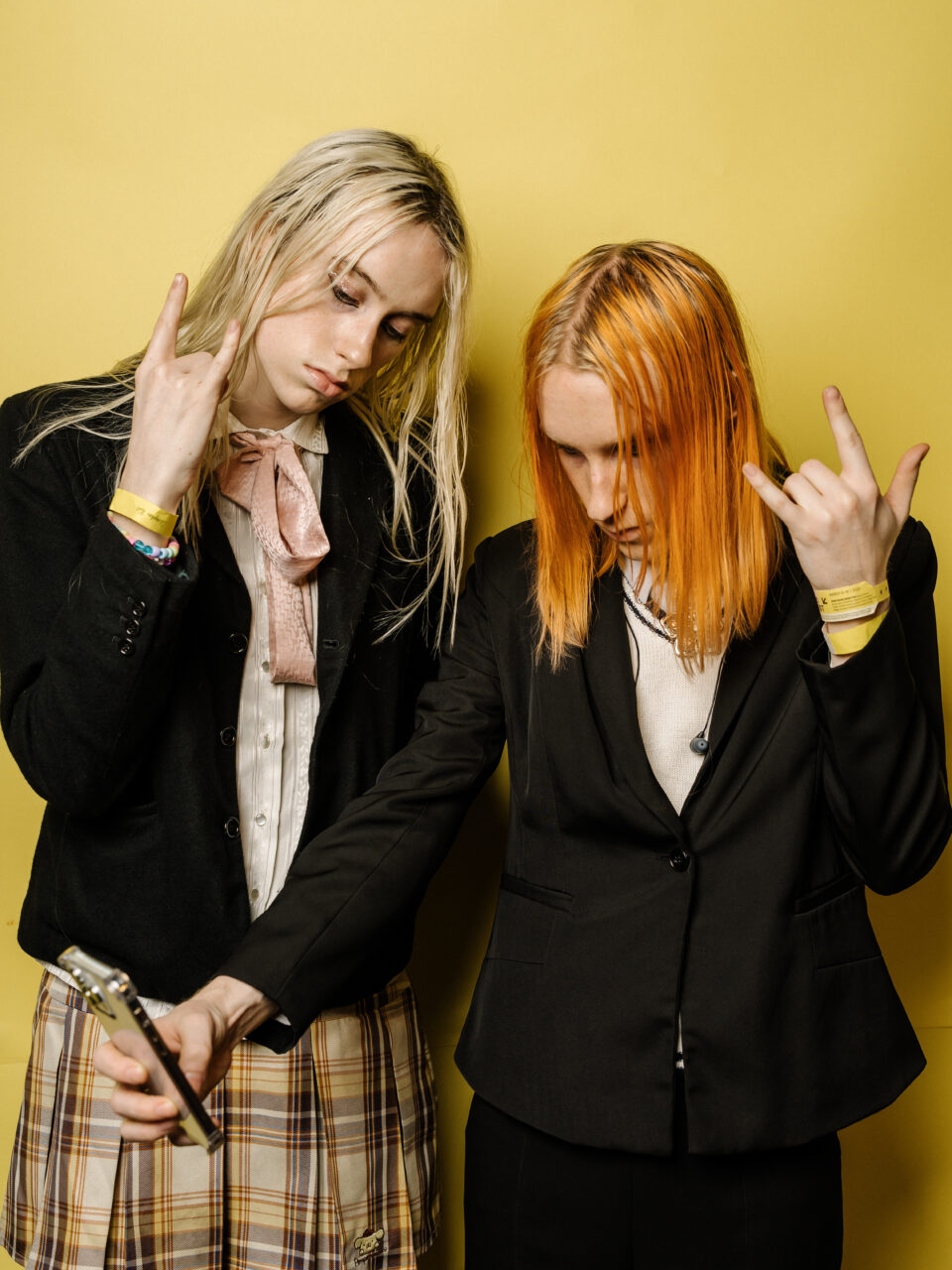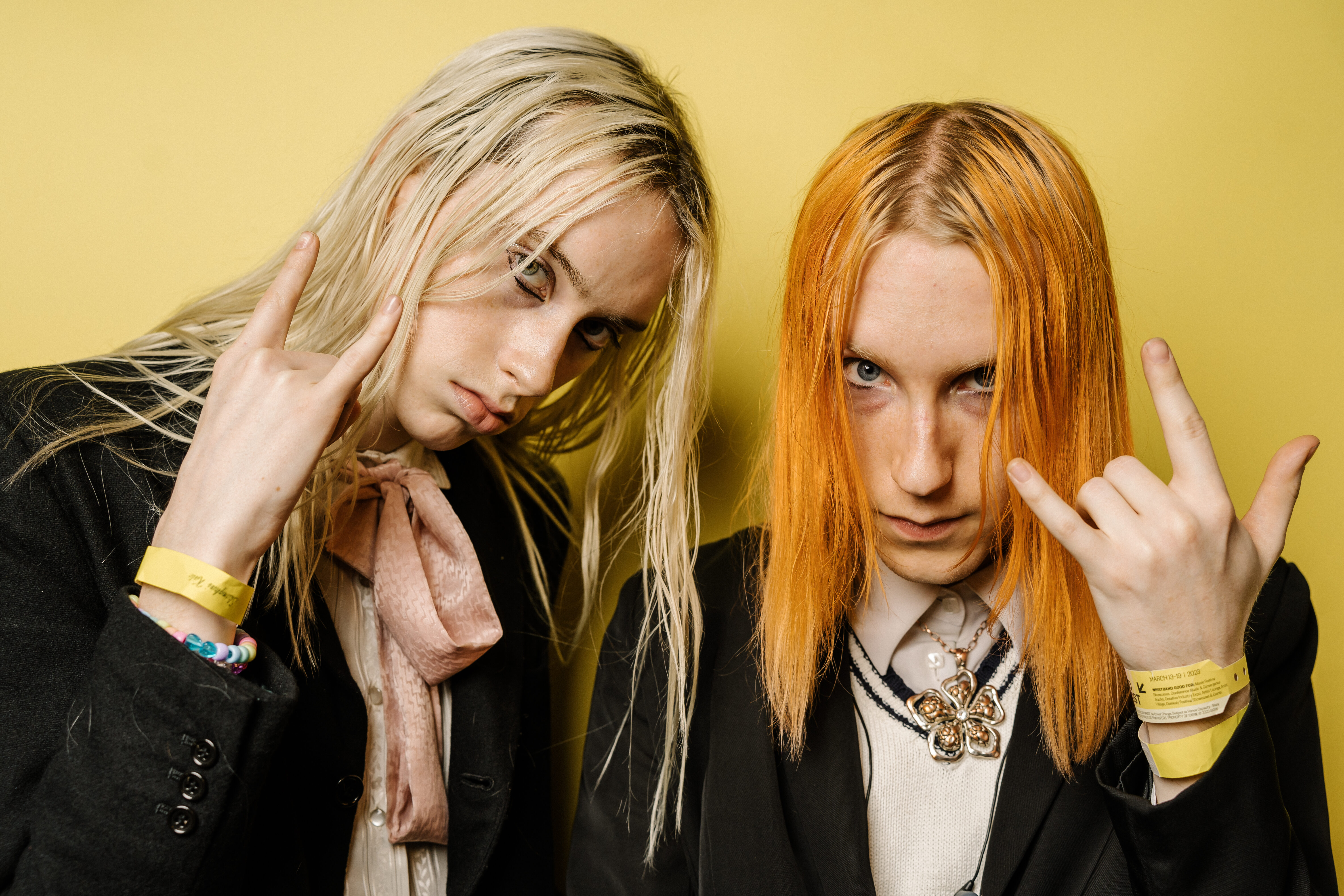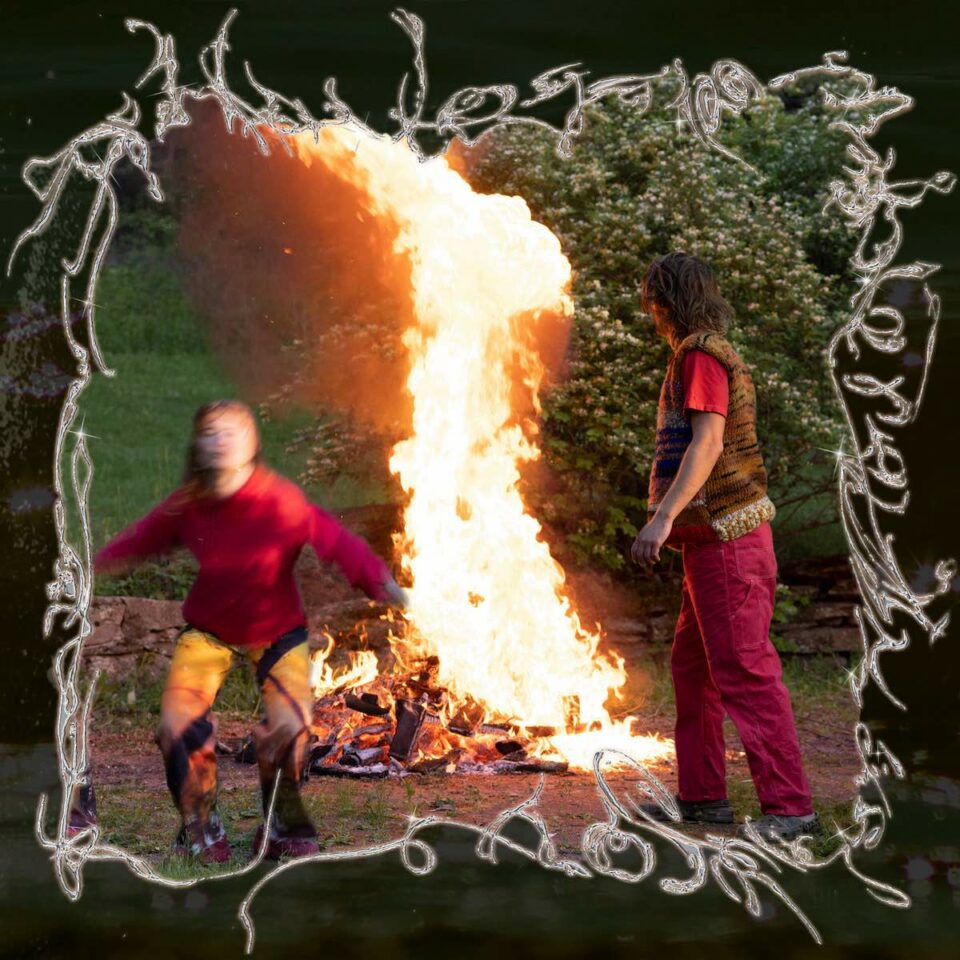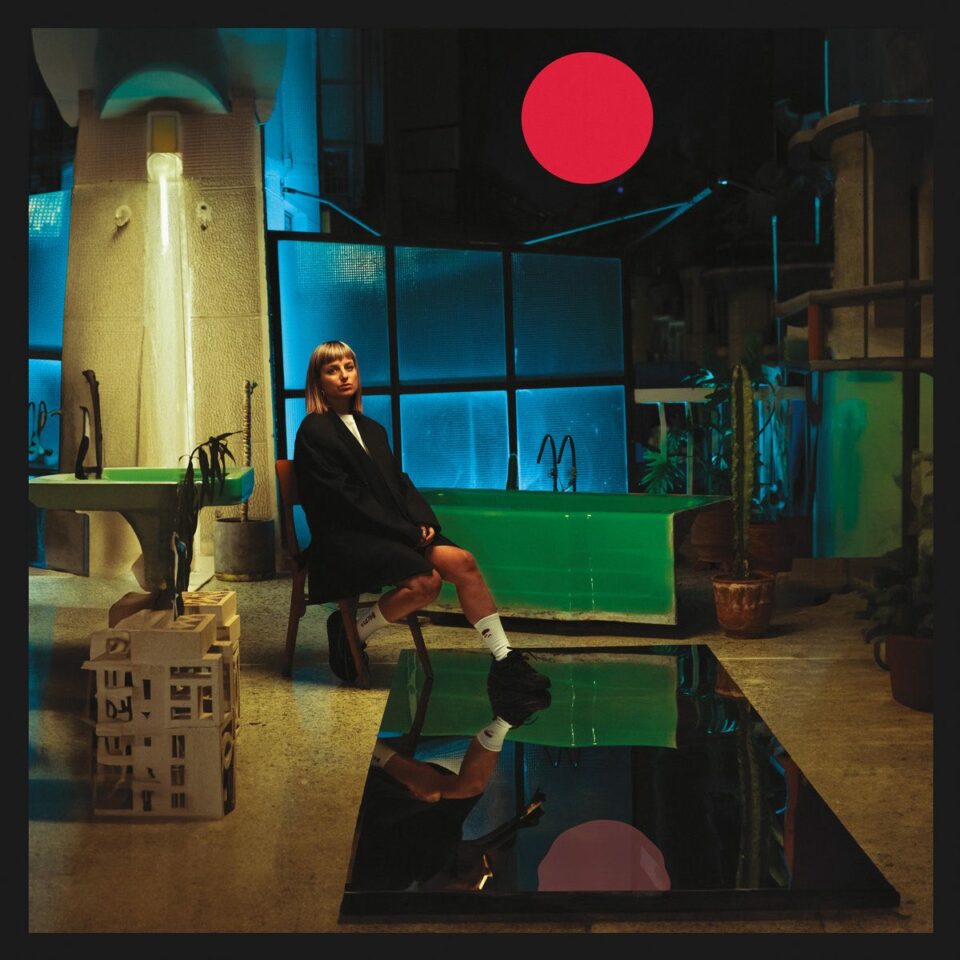New York City doesn’t seem like a natural habitat for hyperpop. From The Velvet Underground on down to the drill rappers and techno heads of today, the city’s musical identity has always revolved around grit, grime, and all-black-everything aesthetics worlds away from the dreamy, candy-colored goofiness that hyperpop is built on. But arguably the biggest band in the city right now is Frost Children, a pair of Midwestern-transplant siblings making noisy neo-bubblegum-pop that refuses to take itself too seriously. At a time when the city’s becoming increasingly impossible to survive in, the duo’s giddy escapism is just what New Yorkers need.
Since getting their start as openers for some of the quarantine-era Zoom parties that launched the current hyperpop boom, Angel and Lulu Prost are now everywhere, as online trendsetters (they played a big role in the “indie sleaze” thing) and fixtures on the percolating New York nightlife scene. Following up on last year’s breakthrough album Spiral, the pair have taken aim at the dance floor and the above-ground pop world with their new LP Speed Run, a glimmering and addictive pile-up of groovy club beats, sticky hooks, and aggressive sonic experimentation that’s already attracting attention far outside the city limits.
We met up with Angel and Lulu near the apartment they share in Ridgewood, Queens, at an Italian restaurant that “we’re at three to five times a week,” Angel says, to discuss the new album, their budding pop star status, and what they’ve learned from the dance floor.
You started out in a very virtual setting, playing a lot of Zoom parties during quarantine, and since then you’ve really made a transition into a group that is very much in the real world. How’s that been to navigate?
Lulu: It was challenging in all the right ways. At first, when I moved to New York two years ago, I was like, “How do we take the psychotic music that we made over quarantine and transfer it to a live stage?” So the first shows, we had that in mind. We also just didn’t have the setup that we have onstage now. It was just a CDJ and two mics. We grew up playing instruments, and we’ve been in bands, and we still had the skills, so we were like, “How do we make some kind of grooveable, danceable live version of these songs?” There were only a couple that we could do live, so we had to start making a bunch of new tracks.
Angel: It’s like the internalized voice of our parents. When we played Skrillex around them they were like, “That’s not music—music is a guitar and singing.” Like, open your mind, mom. Music can be anything. But as you get older it’s like, “Damn, they’re right, nothing hits harder than a guitar on stage.” Maybe that’s just part of growing up, realizing that your parents might be right about some things. Including the live music experience.
“We grew up playing instruments, and we still had the skills, so we were like, ‘How do we make some kind of grooveable, danceable live version of these songs?’” — Lulu
Lulu: I think it’s just my personal taste when I go see a show. I think there are some people who can do the karaoke style, because if you have the choreo and the character, then just the CDJ and mic works really well. But if you don’t have that, the whole performance is really lacking something. I was such a music nerd in high school, so I love seeing people do crazy stuff on stage. I never actually went to real shows, but I watched a lot of videos on YouTube of people on stages doing cool things.
Angel: It’s gotta look good on video.
Lulu: The only festival I’ve ever been to was Second Sky, Porter Robinson’s festival, and one of the main headliners was Jacob Collier. I don’t know any of his music, but I knew he was a big music theory guy, so I went to see his set. I still didn’t remember any of the songs he played, but what I did remember was the load-in. The last person had played and they’d wheeled the CDJs off stage, and then they wheeled on a big drum set and a standing drum set, then two synths, then a full standup piano. They just kept wheeling stuff on, and everyone was like “woah” every time they brought something on. I think there’s an element of chance and risk in playing live that’s really exciting.
“I’d rather loudly fuck up on stage than just make the song sound like the record.” — Angel
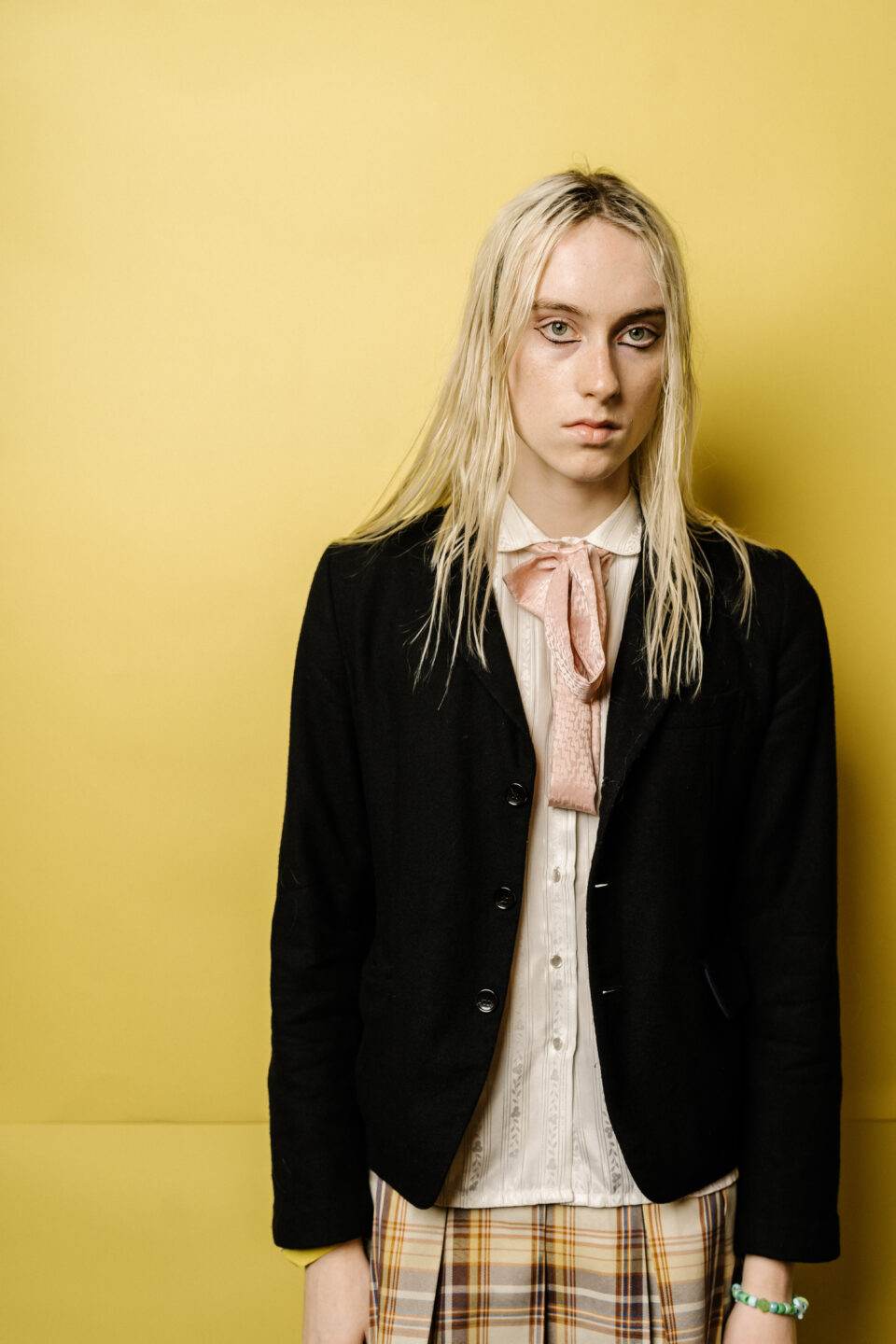
Angel: I’d rather loudly fuck up on stage than just make the song sound like the record. Performing’s a very vulnerable thing. Even when it’s a pop performance, like a “I’m hot, look at me” kind of thing, it’s still really vulnerable. It’s vulnerable to be perceived.
You’ve both talked a lot about Skrillex as this very influential figure in your musical development.
Lulu: I think Skrillex is a very unique artist. He had a lot of appeal with people who go to raves and festivals and all of that, but he also had pull with Midwest people like us who were watching him online.
Angel: I first heard Scary Monsters and Nice Sprites from my older brother’s ThinkPad laptop from high school, and I was just like, “What the fuck?” What’s cool about Skrillex is that at the time it was just like, “Wow, these are crazy noises,” but now it’s inspirational to see him doing his own thing so well and sort of inventing a new sound that becomes its own genre, its own Spotify playlist, and then transcending that. Not like, “I refute this,” but just constantly rising above it. Skrillex, Porter Robinson, George Clanton, Flume, Toro y Moi, Dev Hynes—those are the kinds of artists that are really inspiring to me.
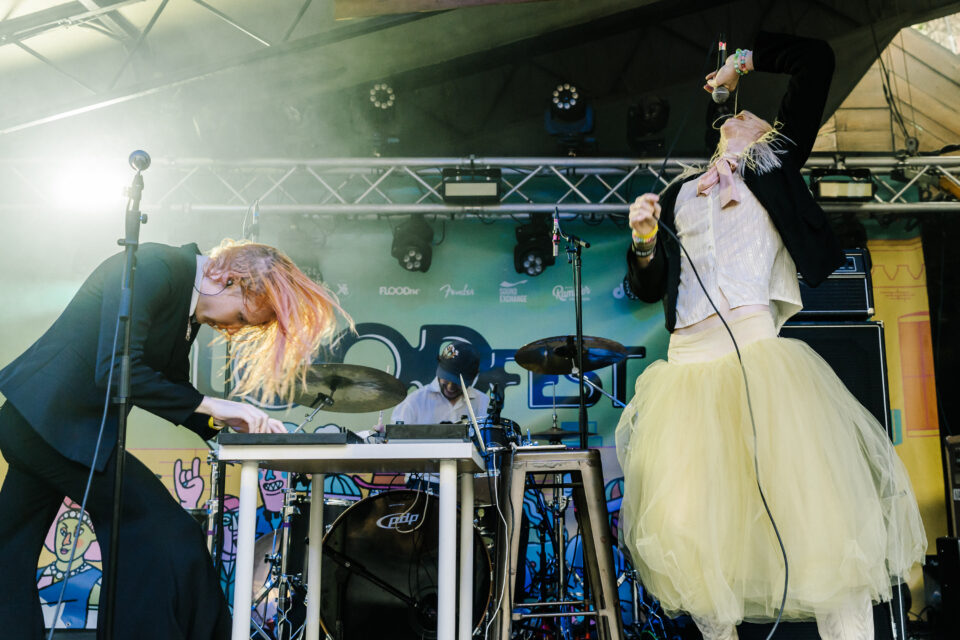
Frost Children / photo by Daniel Cavazos
That first wave of EDM was some of the most critically reviled music ever. I remember the reaction from the dance music scene was such hatred, but I always thought it was really interesting sonically.
Angel: It’s just a constant in the world: purists versus playful-ists, or whatever the opposite of a purist is. I know some people who have a rulebook of what a good techno song is, a good techno DJ set, who are just loudly, adamantly against whatever we’re doing. I don’t know. Music’s supposed to be fun. It’s supposed to be kind of funny.
One thing I love about EDM that I see in your music, and I think this goes all the way back through punk to The Kinks and The Who and even before that, is that music for young people should be kind of annoying, sonically. There should be some part of it that sounds bad to people over the age of 26.
Angel: SXSW was probably the first time that there were truly people at our shows where I was like, “They’re just not fucking with this.” Clearly not into it. Older people, a very different audience—an industry, music-purist crowd.
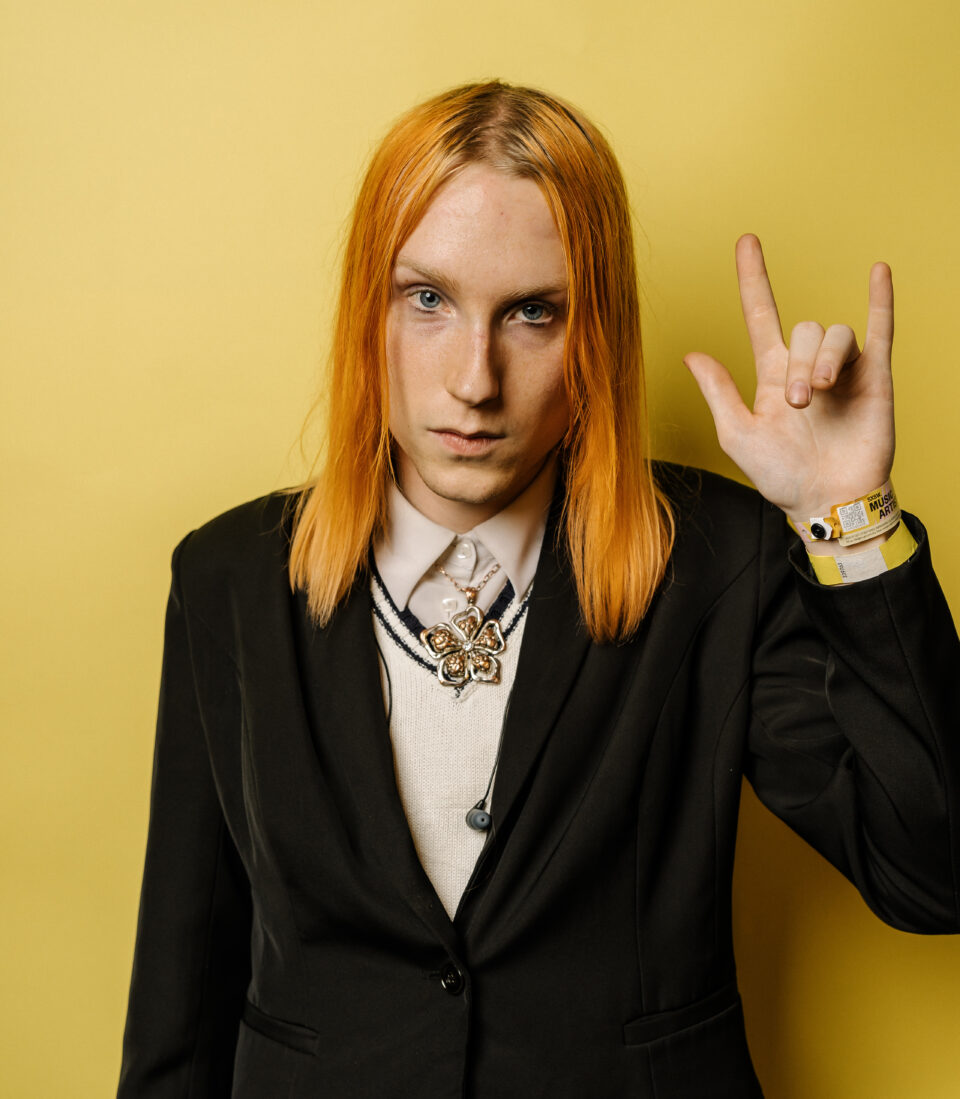
“At one show there was this really old lady who was just shaking her head, very visibly. That’s so funny to me. ‘Look at these tragic kids.’” — Lulu
Lulu: [At one show] there was this really old lady who was just shaking her head, very visibly. That’s so funny to me. “Look at these tragic kids.” [Laughs.]
Angel: I’d much rather have that response than someone say, ‘Oh, that was cool,” and then walk away and forget about it instantly. I’d much rather have you be like, “Damn, what’s happening to music?”
On the new album there’s a lot more pronounced radio-pop element. Some of it gives very KISS FM. Is that something you’re aiming for?
Lulu: Absolutely, yeah. I love embracing being pretty onstage, too. We really wanted to create songs that heighten that and allow us to be pop stars on stage, and not just like “Let’s mosh!” Our mosh pits have never been angry. They’re loving, cute mosh pits. But when I’m dancing, I wanna feel cute and pretty. I think this record is intended for those people, too. I love the idea of being pop stars for one album.
“I know some people who have a rulebook of what a good techno song is, a good techno DJ set, who are just loudly, adamantly against whatever we’re doing.” — Angel
Angel: It won’t be forever. But people are watching us and listening, and what better thing to be than the most glossy, listenable package ever? And then once you get that mass appeal, you have a huge audience and you can do anything you want. But I don’t know a lot of pop music that sounds like this right now.
How have dancing and going out to the club influenced this album?
Lulu: It was a huge influence. We started DJing a lot after the last record. There were a couple tracks on the record that kind of got us into the DJ world, but I had a moment when we first started DJing where I was like, “This record isn’t really DJ-able.” So since then we’ve been making remixes and random beats that have become our DJ set. I think just naturally, those remixes and things we made for the club became new compositions for the new record. It was pretty seamless, but also intentional. Like, “Let’s make the next thing specifically DJ-able.”
Angel: It’s cool making music with a place in mind. It feels very purposeful, in the same way as making music for a movie or something. FL
